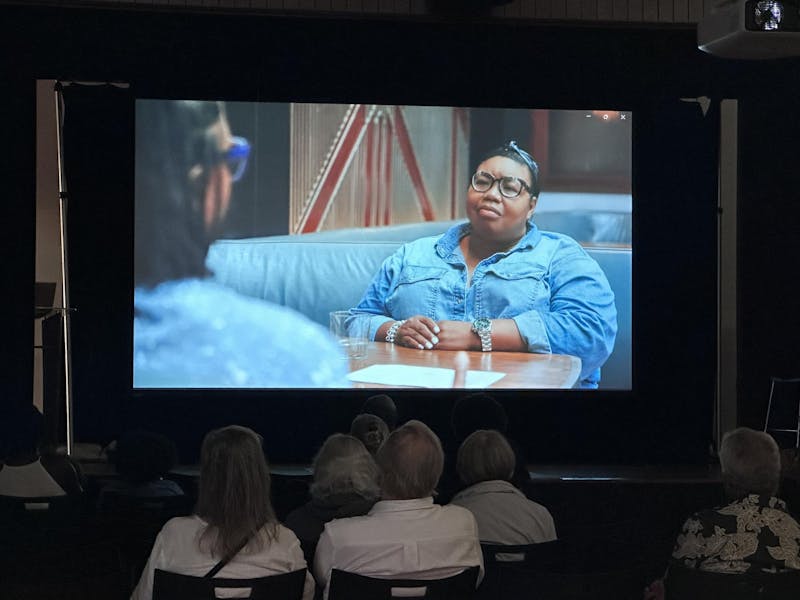Celebrating African American Filmmaking at the 12th Annual Maupintown Film Festival
The Jefferson School African American Heritage Center recently played host to the 12th annual Maupintown Film Festival from September 5-7, a vibrant event aimed at celebrating both emerging African American filmmakers and the rich themes woven into their narratives. This year, the festival adopted the theme “Bold and Beautiful,” channeling both audacity and elegance that reflect African American history and culture.
A Focus on Stories and Themes
This year’s festival spotlighted predominantly documentaries, with a special slot reserved for animated films on Saturday. Each film served as a canvas for discussing important historical narratives and underscoring the significant contributions of African Americans throughout history. Lorenzo Dickerson, the founder of the festival, described the event as a celebration of resilience and creativity. He emphasized how the stories told through film illuminate the journey of African Americans: “We were celebrating all African Americans have come through,” Dickerson remarked. “They’ve made beautiful things out of the experiences that they’ve had in this country over the years.”
Remarkable Documentaries
Among the powerful documentaries featured was “Dark Water White Rice,” directed by Ron Harris. This concise yet impactful film explores the history of the Gullah people, shedding light on the wealth extracted from this community to fund European palaces and addressing the ongoing injustices they face. Despite its brief runtime of 23 minutes and 20 seconds, the documentary left a lasting impression on viewers.
Another notable entry was “Justice and Reconciliation: From Henry Highland Garnet to Harvey Johnson,” crafted by directors Xavier W. Frink and Michael Nelson. This film dives deep into the lives of two civil rights leaders from Maryland, highlighting Garnet’s historic speech in the Capitol Building. The documentary, like many at the festival, seeks to provide both a broad overview and a detailed narrative, allowing viewers to engage with history in an enriching way.
Expanding Horizons Through History
Audience member Edward Brooks succinctly expressed the importance of festivals like Maupintown in expanding knowledge. “We know about Frederick Douglass, we know about Harriet Tubman,” he stated, reminding us that many influential figures, such as Garnet and Johnson, often fade into obscurity. This gathering serves as a vital platform to revive those histories and spread awareness of lesser-known yet impactful contributions.
Documentaries like “Rectify My Cry: The Samuel F. Yette Story,” directed by Ingrid Kelly, further serve this mission. This film examines the repercussions of Yette’s controversial book, “The Choice: The Issue of Black Survival in America,” which critiques government repression of African Americans. Through his journey, the audience gains insight into the broader narrative of Black resilience.
Artistic Approaches to Filmmaking
The festival also embraced artistic interpretations of history. Jean-Jacques Cunnac’s “Selma, Song of the Crossing” explores Martin Luther King Jr.’s marches through a collage of historical photographs and poignant footage. This artistic lens allows audiences to engage with history differently, enriching the overall experience of the festival.
The filmmakers face unique challenges, as Michael Nelson mentioned when discussing the complexity of distilling extensive historical research into digestible narratives. Working alongside Frink, Nelson found it fulfilling to ensure audiences leave with a comprehensive understanding of their subjects, without feeling overwhelmed.
Growth and Evolution of Maupintown
Over its 12-year journey, the Maupintown Film Festival has evolved significantly. With an increasing number of animation submissions, this year introduced a Saturday morning segment dedicated to family-friendly cartoons. This evolution enriches the festival with layers of storytelling that resonate with diverse audiences while maintaining depth in more serious subject matter.
Community Engagement and Inspiration
The festival stands out for its commitment to fostering dialogue between filmmakers and audiences. For instance, a Q&A session following Frink and Nelson’s short documentary allowed attendees to delve deeper into the filmmaking process, motivations, and the importance of contextualizing stories. “I wanted to be immersed in the area that I was living in,” Frink shared, recounting his extensive research for the film.
In addition to the film screenings, the involvement of guest speakers, such as actress Lisa Arrindell and University of Richmond professor Edward L. Ayers, enhanced the learning experience. Arrindell showcased her own short narrative film, providing an invaluable connection between aspiring filmmakers and industry veterans. Dickerson recounted a touching moment where Arrindell inspired a young filmmaker, showcasing the festival’s community-building aspect.
Networking Opportunities
Beyond showcasing films, the Maupintown Festival is a vital networking hub for established and budding filmmakers. According to Dickerson, it offers a space for discussions on filmmaking techniques, editing, and distribution, vital for fostering a new generation of Black filmmakers. The atmosphere is charged with encouragement, providing first-time filmmakers a supportive and engaged audience.
“I never imagined when I started it 12 years ago that it would mean this much to the community as it does to me personally,” Dickerson reflected. The anticipation surrounding the festival highlights its significance and the importance of sharing untold stories that shape the ongoing narrative of African Americans in film and beyond.



